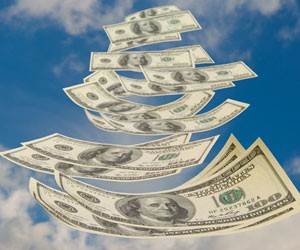Fees and surcharges emerged as an industry practice in about 1997 with resort fees and have increased every year, Hanson said, except for periods following 2001 and 2008 when lodging demand declined. Energy surcharges were introduced in 2000.
Hotels have found numerous fees to tack onto meeting planners’ bills. Among these are increased charges for bartenders, service, and other staff at events; charges for set up and breakdown of meeting rooms; charges for meeting rooms in which meals are served (usually there is a charge for meeting rooms but not an additional room charge for rooms in which meals are served, and at one time even meeting room rental was free with enough guest rooms booked); fees for master folio billing and baggage holding fees for guests leaving luggage with bell staff after checking out of a hotel but before departure.
That last one is allegedly in place at Hilton Hotels as of late; calls to the company were not returned.
Fees and surcharges are especially profitable; most have incremental profitability of 80 to 90 percent or more, so—despite hoteliers’ contention that they’re a necessary evil--they represent significant contributors to industry profits, according to Hanson.



